A tomboy in the cell for women under Phuket Provincial Court demanded to have it, so I had no choice. I handed it over.
Being held a prisoner on Phuket is no fun.
The outlook had seemed brighter when my Phuketwan colleague Alan Morison and I arrived at Phuket Provincial Court earlier on Thursday. Almost all of Phuket's media outlets, with a couple of minor exceptions, were represented there.
They swarmed towards the car as we pulled up, filming and snapping.
Journalists are supposed to report events. We never will get used to being the celebrities of criminal defamation.
Outside the court, one senior journalist representing all Phuket media presented me with a white rose.
It was a touching moment, and a sign that all of Phuket's media, apart from those two minor exceptions, understand the obvious need to fight for media freedom.
Waiting for us beyond the media pack are representatives from Associated Press, Reuters and Voice of America, plus an envoy from the Australian Embassy in Bangkok, two observers from Phuket's Muslim community who have come to pay their respects, and Kulachada Chaipipat, campaign manager of the Southeast Asian Press Alliance.
Before we can enter the court building, Phuket's new senator-elect, Chaiyot Punyawai, comes over and we have a long catch-up chat. A lawyer, Khun Chaiyot was among the first to realise the injustice of our case and offered to represent us soon after the charges were laid in December.
Then he suddenly had to fight an election, so instead today we are represented by four lawyers from Bangkok. Like many other lawyers in Thailand, they are keen to see the Computer Crimes Act and criminal defamation laws killed off.
The following day, we learn later, we are on the front pages of Thai-language newspapers. Before long, all of Thailand will understand that Thailand's reputation is being tarnished by this misguided action by a respected organisation, the Royal Thai Navy.
If the admirals are wise, there's still time for them to fix this mistake.
INSIDE the court, our paperwork is fixed in the foyer, without the need to enter a courtroom. An application for bail is presented. We then are obliged to become prisoners of the court.
An official asks if we want to wait in the staff room, where conditions are good. ''No thanks,'' I say. ''We want to be treated just like other prisoners.''
Under the court we go, where the chief jailer, a cigarette dangling from his mouth, signs us in and guides us to the cells.
This is a grim place.
The women are locked in one cell, the men further inside in a cell that has a mesh over the bars, just to make sure there can be no bars rattling.
In the women's cell there are nine other prisoners, all dressed in beige and brown prison uniforms. I learn later that the number in the mens' cell increases from 36 or 37 to almost 90 as the hours pass, and I am grateful not to be in such a crowded place.
The women also do not wear shackles around their dainty ankles. The tomboy taking my hairclip starts everyone talking, and I find out what conditions are like in Phuket Prison.
The jail is hugely overcrowded, say all the women, with so little space that women and men have to lie on their sides at night so everyone has room to sleep on the floor.
''At night, there is not room for anyone to settle on their back,'' one woman tells me. ''You have room to sleep on your side. And if one person wants to roll over to the other side, everyone must roll over at the same time.''
We work out on the floor of the cell how much space each prisoner has to sleep in the jail, where 2700 inmates now occupy a facility built for 750. The space is frighteningly small, like I guess conditions must have been when people were packed into slave ships. No good wasting money on people who break the law seems to be the rule.
There are four toilets in the court cell for the women but, I am told later, only two for 10 times the number of men. The squat toilets have waist-high doors. There is no toilet paper.
One of the women is in tears. No food or drink is provided officially between 10.30 and 3.30. The men do not seem to be as good at providing for their women behind bars as the woman are at providing for their men behind bars.
I hear a man's voice from outside, calling out: ''Khun Oi! Are you ok?'' I shout back and before long we have water bottles and iced tea cans delivered, and sharing the drinks earns me gentle appreciation.
Later comes food from another friend on the outside.
''What have you been charged with?'' one woman asks.
''Defaming the Royal Thai Navy.''
''You think you're gonna win? I don't think so.''
''Well, we will see. Perhaps I will end up in jail.''
''Try to avoid it if you can. Everything in jail is terrible.''
One inmate tells me she was nabbed last month with 33 kilos of kratom, a natural leaf that's illegal because of its potency when mixed with other substances.
''It was a good business,'' she said. ''We bought kratom leaves in Surat, Nakorn or Krabi, and brought them onto Phuket. We paid 900 baht a kilo and sold the leaves for 1500 baht a kilo.
''Burmese love kratom with energy drinks and mixed with other stuff. The local kids are getting into it more, too. Ya bah and ya ice are too expensive for teenagers.
''We could sell 200 kilos a day and that wouldn't be enough on Phuket.''
One of the other women has an even more disturbing tale to tell for those who only see Phuket's west coast and the tourist beaches.
''All my family has been arrested,'' the woman tells me. How did that happen?
''I worked as a mamasan from home,'' she says. ''When police raided our place about two years ago, they arrested all of us.''
Two young women in the cells are the mamasan's daughters. One of them was working as a prostitute at the age of 13. Another younger daughter and a son are in the juvenile detention centre, at Saphan Hin in Phuket City.
Her husband, who now works as a chef at a resort, was arrested but freed because there was no evidence linking him to the brothel business. He is caring for the youngest daughter at home.
''We would have young students coming to see us and offering to work with us all the time,'' the mamasan said. ''Parents really need to look at what their children get up to these days.
''They all want the latest smartphone or the price of tickets to the cinema. College students especially are keen to make extra money. Many people don't know this happens.''
I go to the toilet. But first, I ask a woman to be lookout. Men standing on benches in the cell next door can see down into the women's toilets.
There is also some communication between the two cells. The men call out: ''Tell us, what is the farang guy in the white shirt and tie in for?''
Curiosity is universal. Information means power.
''We are being sued by the Royal Thai Navy,'' I call back.
''Hooo, that's big, big. You play with the big guys.''
''No, the big guys are playing with us.''
It seems we are both celebrities of sorts, outside and in.
Later I learn that my colleague finds himself in the cell sitting alongside Stein Dokset, the Norwegian who has become well known on Phuket because of the body in the bin killing. He has an interesting story to tell.
We are out at 3.30pm, once the paperwork is completed. It's a relief. Five hours on the inside is plenty long enough for me.
As the cell door swings shut behind me, my fellow inmates wave goodbye. ''Don't come back again!'' one shouts.
In Part II, Alan Morison relates what it was like hanging out with Mr Dokset and about 90 others in a crowded court cell.

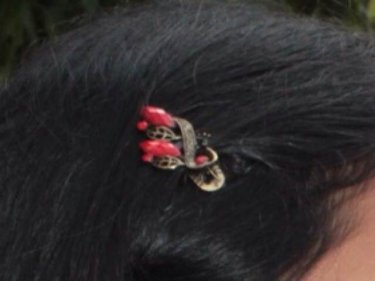
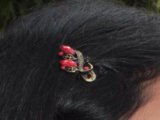













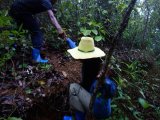






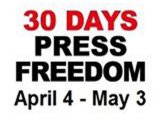



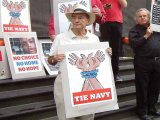






















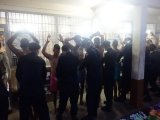






Sorry you had the experience but an excellent piece of writing. Well done.
Posted by Martin on April 19, 2014 06:38